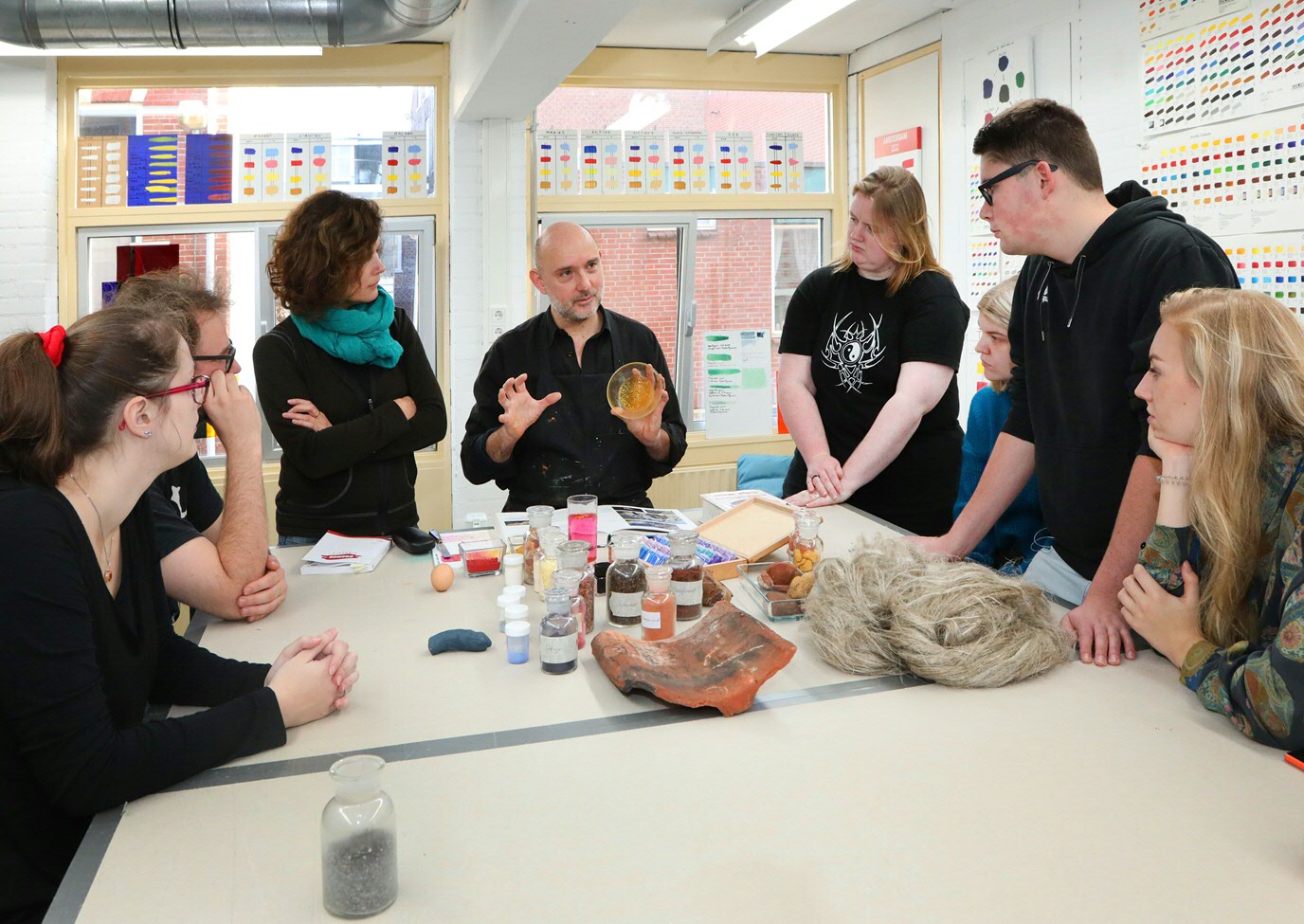Grant for research into learning methods that make hands curious
Within its programme Smart Culture -Arts and Culture, the NWO has awarded a significant grant to the project Curious Hands: Moving Making to the Core of Education. This project examines how learning processes can be improved by developing better modes of education. The grant funds two doctoral research projects under the supervision of Prof. dr. Ann-Sophie Lehmann (University of Groningen: UG) and Prof. dr. Evert Bisschop Boele (Hanze University of Applied Sciences: Hanze) possible. In conducting the research, both the UG and Hanze will collaborate with Public Education Groningen and FryskLab.
Smart Hands
We think not only with our heads but also with our hands. Physically creating something stimulates knowledge and personality development, social interaction, and critical thinking. In the current system of Dutch education, however, the importance of materiality and embodiment is endorsed, but hardly successfully integrated into education. The question then is: How can we achieve this? Moreover, how do we teach this essential competence to future generations? Curious Hands examines this in practice and develops learning methods endorsing the role of hand-oriented physical skills.
Developing Education
To generate a better understanding of the benefits of working with one’s hands, the understanding of how such work is learned must be improved. Curious Hands does so through conducting research in two places: (a) in the workshops at the Minerva Academy, where students learn how to make use of different materials and technologies, and (b) the educational laboratories (e-labs) of four secondary schools of Public Education Groningen in which arts, crafts, and technology are part of the teaching programme. The project then has two goals: to acquire basic knowledge of how learning with one’s hands functions and to develop different pedagogical formats for better integration of this skill in secondary and higher education.
PhD research: UG and Hanze
The NWO grant funds two PhD positions. At the UG, PhD candidate Vanessa van’t Hoogt will map out how Minerva students learn in the workshops in which the handling of materials is essential. Imka Buurke is the PhD student and college teacher at the Minerva Academy and Hanze research group. She investigates the design of e-labs in secondary education schools of Public Education Groningen and how materiality and embodiment can play a role in student learning. FryskLab, the mobile workplace of Fers, and the Frisian pubic libraries will operate as external partners.

| Last modified: | 24 October 2019 08.31 a.m. |
More news
-
08 October 2024
Tracking the tongue
Thomas Tienkamp and Teja Rebernik explain how fundamental research on articulation could help explain speech disorders and may contribute to the recovery of people with speech disorders in the future.
-
08 October 2024
Passion for sustainable fashion
Chilean journalist María Pilar Uribe Silva has dedicated half her life to making the clothing industry more sustainable. This summer, she started a PhD project at the RUG. ‘I think it is possible, a more just and sustainable clothing sector. What...
-
01 October 2024
Will there be a female American president?
Historian Jelte Olthof is interested in the origins, workings, and influence of the US Constitution. How does the 1787 Constitution function in present-day America? An America that is rapidly changing and where, in 2024, a female president may be...
